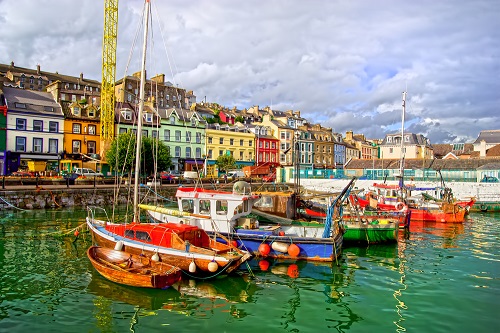You should have little difficulty in obtaining your prescription medication during your stay in Ireland. Whether or not you qualify for a medical card or a GP visit card, you can still apply for what is known as the drugs payment scheme, so long as you are deemed to be ordinarily resident in the country. You will be classed as ordinarily resident if you have been living in the country for a year, or are planning to do so. We will look at some of your options below.
What is available?
Nearly all pharmacies in Ireland have agreements with the HSE to provide services under the primary care reimbursement services scheme, which means that prescriptions are partly subsidised. It is worth noting that the Irish press has recently reported that Irish patients pay more than six times the international average for generic medication, but pay less for brand name medication. Pharmaceutical experts have also warned that drug costs have been spiralling, and that this could lead to shortages in future.
Drugs must be approved by the Health Products Regulatory Authority (HPRA) before they can be sold. However, this does not necessarily mean that drugs and medicines will be approved for free and subsidised prescription schemes.
In general, you will not be allowed to bring more than a three-month supply of your prescription medication into Ireland, and be aware that some medication is on the prohibited list. What is allowed in your country may not be permitted in others. You may need a doctor’s letter for any ADHD medication, strong painkillers, or sleeping pills. For example, benzodiazepine is a controlled substance in Ireland. Check with your GP or clinic before you fly, or contact the Irish health authorities directly.
If you have a medical card and are prescribed items that are not on the approved list, you can apply to have them covered under a discretionary hardship scheme. Your pharmacist will need to apply on your behalf to the local health office to have the item covered by the hardship scheme. You can get more information about this scheme from your pharmacist or GP.
Pharmacists are permitted to substitute different versions of some prescribed medicines. These may be cheaper generic versions of branded medicines, which must be included in an approved list from the HPRA.

How much do prescriptions cost?
This will depend on whether you are signed up with the drugs payment scheme (DPS), which is not means tested. If you are ordinarily resident in Ireland, the scheme is open to you, your spouse/partner, and your children aged under 18 (or under 23 if they are in full-time education).
If you are registered with the DPS, you and your family will pay no more than €124 each calendar month for:
• Approved prescribed drugs and medicines
• Rental costs for a continuous positive airway pressure (CPAP) machine
• Rental costs for oxygen
If you do not have a medical card and you pay more than €124 a month (€114 from September 2020) for any of these, you will be eligible to apply.
You will need a medical report, but you can include any family member, regardless of their age, if they are unable to fully maintain themselves and have:
• A physical disability
• An intellectual disability
• An illness
You can contact the DPS directly, either online or by post, for details and an application form. Their address is:
Client Registration Unit
PO Box 12966
Dublin 11
D11 XFF3
You will then be issued with a plastic card for each family member, which you will need to take with you when you go to pick up your prescription. You do not have to use the card with any particular pharmacy, but for the sake of convenience it is advisable to use the same one in the course of a single month. If you pay more than the maximum €124 (€114 from September 2020), then you will be able to claim a refund. However, if you choose to pay more for a brand name drug, you will need to pay the extra cost.
If you have a medical card, your prescription charge will be €2.00 for each item on your prescription, up to a maximum of €20 per month per person or family.
If you are over 70, the prescription charge will be €1.50 per item, up to a maximum of €15 per month per person or family.
This prescription charge will be reduced by €0.50 from July 2020.

Note that under the long term illness scheme, people suffering from certain conditions can get free drugs, medicines, and medical and surgical appliances.
You may also pay out of pocket for medication. As a guideline, some sample costs are:
• Amlodipine: €3.35
• Cymbalta: €20.00
• Omeprazole: €4.70
• Ventolin: €3.20
How to get the care you need
Your local pharmacy should be able to provide your prescription without difficulty. GPs are allowed to dispense drugs and medicines directly to patients if they have only one practice centre and this is three miles or more from the nearest retail pharmacist. Nurses are also permitted to dispense drugs in certain circumstances.
If you are obtaining your prescription for the first time at your local dispensary, it is a good idea to take the packaging to show to your pharmacist, to avoid any miscommunication.
Pharmacies are usually open from 9 a.m. to 6 p.m. on weekdays, but some may open later or at weekends, for any emergencies. Check the opening times with your local dispensary.

